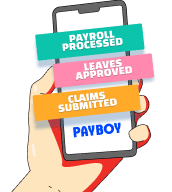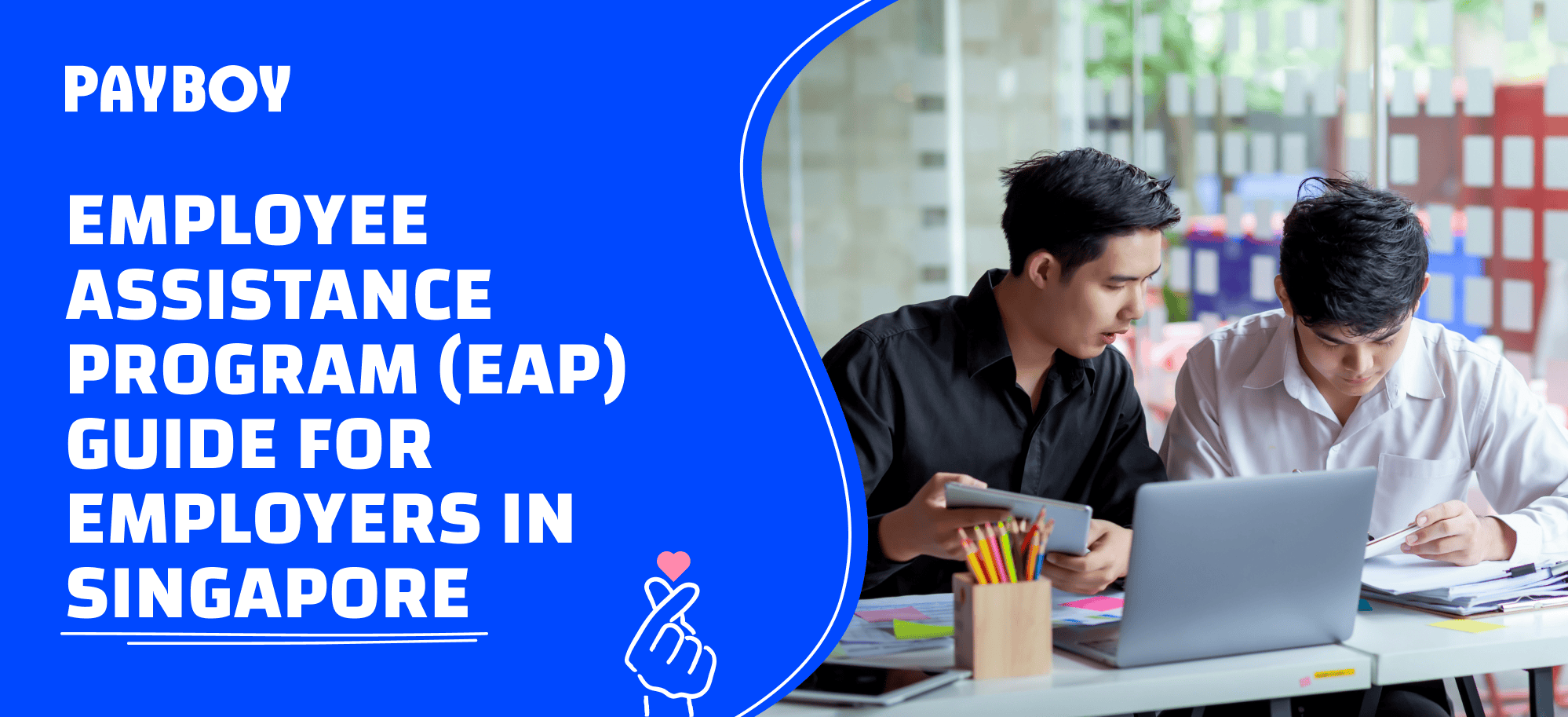As a business owner or HR professional, it is important to understand all the HR regulations to avoid penalties! In this guide, we will walk you through everything you need to know about the Skills Development Levy, from its purpose to payment procedures, making sure you're well-equipped to navigate this essential component of employer responsibilities!
What is the Skills Development Levy (SDL) and its purpose?
The Skills Development Levy (SDL), which was mandated in the Skills Development Levy Act of 1979, is a distinct levy that employers must pay in addition to other taxes like CPF contributions and the Foreign Worker Levy (FWL).
The funds collected via SDL flow into the Skills Development Fund (SDF), a key player in Singapore's workforce development. This financial stream supports two pivotal avenues:
- Workforce Enhancement: SDF's contributions empower workforce upskilling initiatives, ensuring employees stay relevant and adaptable. It's an investment in lifelong learning that fosters a culture of continuous improvement.
- Training Support: Companies that allocate resources to employee training reap the advantages of training grants funded by the Skills Development Fund (SDF). This financial backing eases the costs of upskilling, encouraging businesses to enrich their workforce's skill set.
Administered by the SkillsFuture Singapore Agency (SSG), the SDL and SDF stand as a testament to Singapore's commitment to fostering a skilled, competitive, and forward-looking workforce.
Do all employers need to pay SDL?
Yes, all employers who hire employees in Singapore are required to pay SDL. This includes businesses of all sizes and across various industries, as long as you have employees on your payroll.
However, there are a few exemptions to keep in mind:
- An employee who is employed solely as a domestic servant, chauffeur, or gardener and does not have any part to play in the employer’s profession.
- An employee who does not render any services in Singapore within a month. This excludes employees who are on official leave from their job.
Do employers need to pay SDL for their foreign employees?
If you employ foreign workers in Singapore, the SDL guidelines also apply to them! There is no distinction between foreign and local employees under the definition of ‘employee’ in the Skills Development Levy Act (Chapter 306).
This means that you're responsible for contributing to their skill development, just as you would for your local employees. This regulation serves as a testament to Singapore's commitment to building a skilled and diverse workforce that can thrive in the global economy.
What are the SDL contribution rates?
The current SDL contribution rate is 0.25%, capped at a monthly remuneration ceiling of $4,500.
Do note that the minimum contribution per employee is $2.00, while the maximum contribution per employee is $11.25.
How do I calculate the total SDL for all my employees?
Here is an example of how to calculate the total SDL payable:
| Employee |
Monthly Remuneration |
SDL Payable |
Remarks |
| A |
$150.80 |
$2.00 |
Minimum of $2 is payable for those earning less than $800 |
| B |
$609.50 |
$2.00 |
Minimum of $2 is payable for those earning less than $800 |
| C |
$2,000.00 |
$5.00 |
0.25% of monthly remuneration |
| D |
$4,500.00 |
$11.25 |
0.25% of monthly remuneration |
| E |
$5,000,00 |
$11.25 |
SDL is on the first $4,500 only |
| F |
$7,000.00 |
$11.25 |
SDL is on the first $4,500 only |
|
Total |
$42.75 |
|
| Total SDL Payable |
$42.00 |
Rounded down is done at the total for the whole organisation and not for each employee. |
How do I pay for SDL?
For local employees, navigating your Skills Development Levy (SDL) payments is now more convenient than ever with CPF EZPay. This integrated solution not only streamlines the payment process for your employee’s SDL along with their CPF contributions, but it also calculates your SDL payable automatically based on your local employees’ declared remuneration.
For foreign employees, you can pay directly to SkillsFuture Singapore by either PayNow or Bank Transfer.
Tip: Head over to our “CPF guide for employers” to learn everything you need to know about CPF as an employer!
What is the due date for SDL payments?
SDL payments are typically due by the 14th of the following month from when the remuneration was paid to your employees.
For instance, if you paid your employees in July, the SDL payment would be due by 14 August. Meeting this deadline is crucial to avoid any late payment penalties, which can add up over time.
What happens if my SDL payments are late?
Unfortunately, there will be a penalty of 10% per annum for any amount outstanding under the SDL regulations. This serves as a gentle reminder to keep up with your responsibilities as an employer and contribute to the skill development of your workforce on time.
Tip: Check out our guide on “6 penalties for HR non-compliance to avoid in Singapore” to err on the side of caution!
Do I get a refund if I overpay SDL?
Accidental overpayments happen, but rectifying them is a straightforward process when it comes to SDL. If you find yourself in this situation, follow these steps to initiate a refund request:
- Lodge an enquiry: Kickstart the refund process by submitting an enquiry through SkillsFuture SG’s feedback portal. Here, you'll outline the period and the excessive amount that necessitates a refund.
- Prepare essential documents: To facilitate the swift processing of your refund, you'll need to provide certain supporting documents. These include:
- Corporate PayNow ID
- SDL Payment Receipts: Gather relevant receipts, such as Forms CPF 90 and 90A, that evidence your overpayment.
- Payroll Register: Prepare a comprehensive payroll register of all your employees (including foreign workers) using the prescribed payroll register.
You will be notified via e-mail of the outcome of your refund request.
Simplify your SDL calculation with Payboy HR software!
With our fully compliant, customisable, and integrated payroll processing module, you can automate your SDL calculation and also enjoy additional features that are designed to save you time and effort:
- 100% compliance and 100% peace of mind
-
-
- Forget about payroll and SDL calculations, CPF contributions, and IR8A submissions. Our software will automatically calculate them for you and keep you compliant with the latest regulations from MOM, CPF, and IRAS.
- Covers any work arrangement
-
-
- Working with full timers, part timers, freelancers, and contract staff? We’ll take care of the unique payroll requirements for each working arrangement.
- Transparent, Accurate, and Simple
-
-
- Have full visibility on how payroll is calculated automatically based on shifts, attendance, leave, and submitted claims within an intuitive experience.
- Customisable itemised payslips
-
-
- Automatically generate itemised payslips for your employees.
- Fully integrated with your preferred platforms
-
- We’ll fit into your ecosystem seamlessly and keep your finance team happy. Learn more about our seamless integrations with Xero, Financio, and Quickbooks.
Streamline your HR processes with Payboy today!
As a PSG-approved HRMS, Payboy provides a robust system to help you manage your HR tasks so that you can focus on your business and people!
With our wide range of modules, you can customise a solution to meet the specific needs of your business:
Payroll Processing | Leave Management | Claims Management | Applicant Tracking | Time Attendance | Shift Scheduling | Appraisal System | Inventory Management | Project Costing | Training Management | Benefits





















